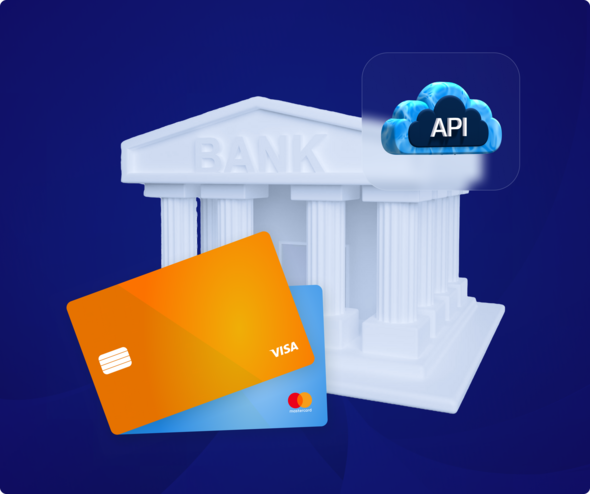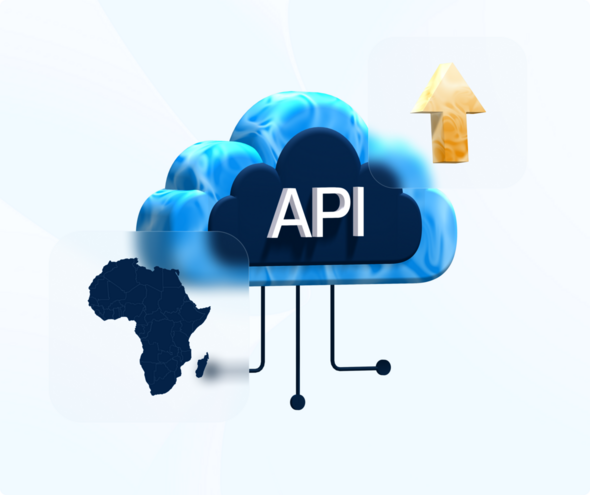Card issuing is no longer limited to banks. Today, enterprises can launch card programs by working with licensed issuing partners—without taking on the full regulatory and operational burden internally.
But finding the right card issuing provider isn’t always straightforward. A lot of teams run into challenges for two big reasons:
- They compare providers based on features alone, instead of long-term scalability, control, and support.
- They don’t know what to look for once you factor in real-world rollout requirements (multiple teams, entities, geographies, and approval chains).
In this guide, we’ll break down what you need to evaluate to find an ideal card issuing partner—plus a practical checklist you can use to make a clean, confident decision.
An Overview of the Card Payment Market
The card payment market has continued to skyrocket, due to the increasing demand for digital payment services over the years.
According to Allied Market Research, the global credit card payment market was valued at $524.9 billion in 2022 and is projected to reach $1.2 trillion by 2032, growing at a CAGR of 8.8% from 2023 to 2032.
The shift away from cash can be directly linked to the growing use of advanced digital payment technologies, such as contactless payments etc. E-commerce has also been a big deciding factor because it enables seamless payment capabilities from anywhere across the world.
On the other hand, the rising demand for virtual cards was established to improve security measures in financial transactions, streamline mobile payments, and meet the growing need for digital payment solutions.
The market is currently projected to reach $2,403.3 billion by 2032, growing at a CAGR of 21.5% from 2024 to 2032.
Over the years, cards have facilitated payment services for businesses and individuals across the globe. While cards were once issued exclusively by banks, today, licensed card-issuing partners can provide the same capabilities with far fewer hassles.
Smart Checklist on Choosing an Enterprise Card-Issuing Provider
Card Provider Checklist
How To Choose The Right Card Issuing Provider?
Here are a few factors to consider before deciding on a card-issuing provider:
1. Core Functionalities
One of the first things to consider when choosing a provider is its functionalities.
It’s important to ensure that the provider offers services that align with your business needs. Some of the primary functionalities of a card issuing provider include:
- Card Creation and Activation
- Top Up and Funding
- Transaction Monitoring and Reporting
- Card Variants, e.g., Debit, Credit, Virtual, or Prepaid
- Statement Creation, and many more.
Confirm that your selected partner offers these capabilities, ensuring that they align with your company’s objectives. You can also ensure that the card issuing provider supports advanced technologies, such as EMV, contactless payments, and NFC
2. Flexibility
Ensure that the selected card issuing provider offers a customisation feature, such as card designs, to suit your business brand guidelines and customers’ requirements.
This is essential because many API issuing providers typically offer standard user-facing digital interfaces. Best to confirm before purchase.
3. Fraud Prevention Measures
This is one of the most concerning factors to consider. Card issuers typically hold sensitive information of cardholders, hence they’re the targets of fraudsters.
When deciding, it’s important to ensure that the card issuing provider has the right tool and functionality to prevent such occurrences.
For example, a card issuing company can encrypt and tokenize cardholders’ data to prevent misuse and protect against data breaches. Multiple authorization requirement is also a good way to prevent such occurrences.
4. Compliance & Regulations
Confirm if the provider is compliant with all necessary compliance and regulatory requirements, such as PCI DSS (Payment Card Industry Data Security Standard).
This is a mandatory regulation that ensures companies processing, storing, or transmitting cardholders' information do so in a secure manner without breach or fraud.
Plus, ensure they do not have a record of data breaches or regulatory violations.
5. Cost Structure
This does not necessarily mean that the provider’s fees must match your budget.
Aside from that, ensure they are transparent about all required fees, including setup fees, transaction fees, hidden costs, and more.
Several providers tend to showcase other forthcoming fees after the company has onboarded. Make sure to clarify this with your selected provider.
To get the best advantage, compare their pricing models with other providers.
6. Reporting Analytics
In most cases, providers that offer expense reporting capabilities are a good sign of high-quality offerings. Pay close attention to the details of their reports, how often they are, etc.
A good card-issuing provider should be able to deliver accurate reporting details regularly.
How to Evaluate the Key Performance Indicators of a Card Issuing Provider
Beyond the listed factors, the following are key performance indicators to look out for when searching for a card-issuing provider:
- Uptime Percentage: This measures the percentage of time the system is active. A 99.9% uptime is a good start.
- Transaction Success Rate: This evaluates the percentage of transactions processed without errors. A 95–99% successful transaction is considered strong.
- Response Time: This is the speed at which the provider approves/declines transactions.
- Card Issuance: A good provider should be able to produce multiple cards without delays.
- Peak Transaction Handling: This is a provider’s ability to process high volumes without downtime.
- Fraud detection rate: The provider's systems should detect and block at least 90% of suspicious activity before it escalates.
- Settlement Timelines: The selected provider should resolve settlement disputes within T+1 or T+2 business days.
- Customization capabilities: The provider must be able to configure rules, limits, and branding without lengthy delays.
- Availability of multi-currency support: A card issuing provider should, at a minimum, provide NGN and USD capabilities, with options for additional currencies where the business operates.
- Time-to-market: With a good provider, you should have the ability to launch a new card program within 4–8 weeks.
- Comprehensive API documentation: A good provider should provide clear, well-structured, and continuously updated API documentation. This documentation should include sandbox environments for testing, code samples/SDKs in common languages, 99%+ endpoint coverage (all core features exposed via API), and Change logs and developer support channels for quick issue resolution.
Best Card Issuing Provider for Businesses in Africa
To make your decision process smoother, we’ve evaluated the best card issuing company based on market demands, reputation, capabilities, reviews, and other factors.
Miden is one of the best card-issuing providers in Africa. They offer specialised card features that allow businesses and enterprises to offer customised or corporate cards to their target audience.
With over 500,000 cards issued, Miden is redefining what’s possible for businesses through flexible card infrastructure.
Additionally, they are PCI DSS compliant and have helped multiple financial and non-financial institutions in Africa and beyond.
If you’re looking for the right card-issuing partner near you, Miden ticks all the boxes.
Final Thoughts
Selecting the right card issuing provider is a process that can either harm your business’s growth or elevate it. From regulatory compliance and security to adaptability, support, and multi-currency capabilities, the stakes are too high to settle for less.
With our guide, you should be able to select a provider that not only processes transactions but also empowers your business to thrive across Africa’s payment landscape.





